
Choosing the right food
Experts tell us that consuming a diet rich in omega 3 fatty acids, vitamins A, C and E, and minerals like zinc go a long way in protecting the eyesight and warding off conditions like macular degeneration of the eyes and cataract. For a good vision, one should consume the following food items on a regular basis: • Green leafy vegetables like spinach and collards • Fish like salmon and tuna • Protein rich foods like eggs, bans and nuts • Citrus fruits like oranges and lemons • Fruits and vegetables rich in vitamin A like carrots and cantaloupe Lutein present in leafy green vegetables and reverse the symptoms of conditions like the macular degeneration of the eyes. Omega 3 fatty acids present in fish can prevent dryness of eyes.
- Important notification about information and brand names used in this slideshow!
- Photo courtesy of Charles Smith by Flickr : www.flickr.com/photos/24415055@N00/8324063296/
- www.webmd.com/eye-health/good-eyesight
- http://healthyliving.msn.com/diseases/vision/10-tips-to-protect-your-eyes-1
- http://www.allaboutvision.com/over60/ways-to-protect.htm
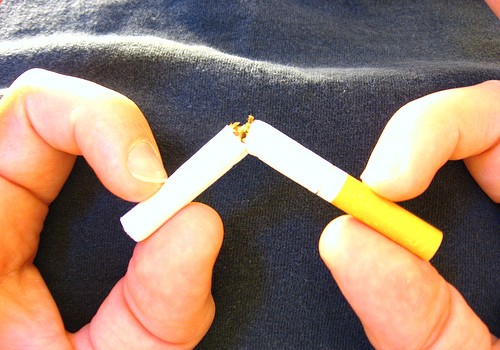
Quit smoking to protect your eyesight
Smoking is not only bad news for your general well-being, it is also a harbinger for various eye related diseases. According to experts, people who smoke are more likely to lose their vision rather than develop lung cancer. Smoking has been found to be associated with conditions like cataract, macular degeneration of eyes, and damage to the optic nerve. In fact, smokers run a four times higher risk of developing acute macular degeneration of eye compared to non-smokers. Similarly, the risk of developing cataract is two times more in smokers than non-smokers. This is because, toxins inhaled during smoking are directly absorbed in the blood stream and may damage the blood vessels present in the eye.

Get your eyes examined regularly
A regular examination of the eyes plays an important role in protecting your eyesight. It helps in detecting any loss of vision and catching any eye disease in its early stage so that treatment can be initiated before much harm is done to the eyes. According to American Association of Ophthalmologists (AAO), at least one eye examination should be done before the child is five years old. This helps in finding out problems like amblyopia (lazy eye) or strabismus (misaligned eyes). Thereafter, eyes should be examined as per requirement till one reaches the age of 19. Thereafter, there should be at least one eye examination in the twenties and two examinations in the thirties. After the forties, eyes should be examined every two to four years. Once you are above sixty-five, you should get your vision tested every one to two years. In case there is a positive family history of diabetes, hypertension or any other eye related disease, one should go for an eye examination more frequently.
- Important notification about information and brand names used in this slideshow!
- Photo courtesy of Svein Halvor Halvorsen by Flickr : www.flickr.com/photos/sveinhal/2182773789/
- healthyliving.msn.com/diseases/vision/10-tips-to-protect-your-eyes-1

Protect your eyes from the sun to maintain good eyesight
If you squint in harsh sunlight, you tend to develop crows’ feet around the eyes. Sunglasses not only prevent the formation of crows’ feet, they also protect your eyes from the harmful ultraviolet component of sunlight. Ultraviolet light is known to cause the development of cataract and lead to macular degeneration. Ensure that you always wear sunglasses whenever you step out in the sun. This is especially important in regions of high glare, like near the snow and water. Before buying sunglasses, make sure that they resist ultraviolet rays. Wearing sunglasses which do not possess this quality is like not wearing sunglasses at all. Apart from protective sunglasses, wearing a wide brimmed hat also goes a long way in protecting your eyesight.
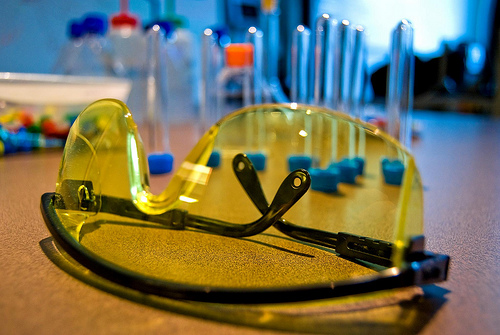
Use safety eyewear whenever it is necessary
One should always wear protective goggles when working with hazardous materials like chemicals. Same goes for people employed in construction work, and any job dealing with machinery and flying particles. Working with the flame used in welding can be very harmful for the eyes and hence, protective eyewear should always be worn while welding. Sportsmen, especially those who play ice hockey, racquetball and lacrosse, are more prone to injure their eyes while playing. Apart from wearing sports goggles, they should also wear helmets with protective face masks. Simple household works like hanging a picture on the wall or plastering can cause injury to the eyes because of flying particles. Wearing simple protective goggles can help in avoiding any damage to the eyes.
- Important notification about information and brand names used in this slideshow!
- Photo courtesy of Scott Heffield by Flickr : www.flickr.com/photos/hefftech/2291148799/
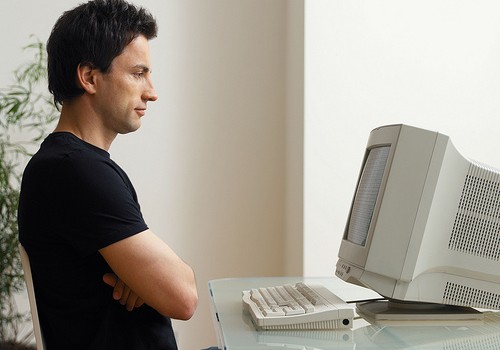
Look away from the computer screen from time to time
Working long hours in front of the computer screen can lead to dry eyes, blurry vision, difficulty in focusing, eye strain, and pain in neck, back and shoulder muscles. It may also cause headache. To protect your eyesight while working on computers, experts recommend that: • Use an antiglare screen. Prevent glare on screen caused from light coming from windows or other lights. • You should sit in a manner so that your eyes are level with the top of the computer screen. This ensures that you look slightly down while seeing the screen. • Ensure that your glasses or contact lens prescription is up to date. • While working for long hours, blink often. After working at a stretch for 20 minutes, focus your eyes at something 20 feet away for 20 seconds. This helps to rest the eyes. After every two hours, take a 15 minute break by moving away from the computer.
- Important notification about information and brand names used in this slideshow!
- Photo courtesy of Victor1558 by Flickr : www.flickr.com/photos/76029035@N02/6829344565/
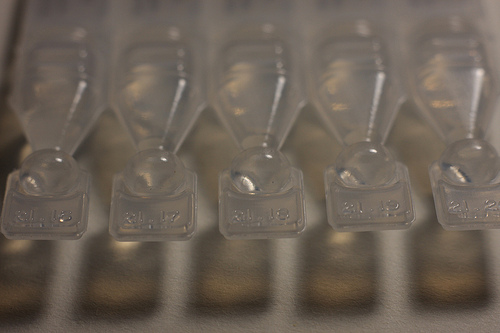
Use artificial tears
Our tears are a mixture of water, mucus and oil. The oil is formed by small glands situated on the eyelids. When a person blinks, the oil coats the surface of the eye and prevents the evaporation of tears. However, if this oil film is not properly formed, tears evaporate quickly and the eye feels dry. This results in a reflex watering of eye when it is dry or irritated. Omega 3 fatty acids are important for the formation of the oil film. If the intake of this nutrient is deficient or if you sit for long hours in heat or in front of the vent of air conditioner, you can develop dry eyes. This condition is also caused as a result of hormonal imbalance secondary to a thyroid problem or due to menopause. Taking antihistamines or staring at the computer screen for a long time may also cause dry eyes. To counter dry eyes, one should try to keep the eyes moist with the help of artificial tears. They are easily available over the counter. However, if the dryness is not relieved despite using artificial tears, one should see the doctor.

Be aware of your family's health history
Many of the problems related to eyes are hereditary. Therefore, it is extremely important to know the medical history of your family. If you are aware of a certain eye condition in your family, you can tell your doctor about it who will then schedule your eye examinations accordingly. The purpose is to catch the disease in its early stage, in case you develop it, so that treatment can be initiated promptly. Your chances of developing glaucoma become 4 to 9 times higher if the family member has suffered from the condition. Similarly, conditions like macular degeneration are also known to run in families. If a family member has history of diabetes or hypertension, you may also develop it. Both these conditions are related to retinopathy which may cause subsequent loss of vision.

Check for diabetes and high blood pressure
Diabetes and hypertension have been associated with eye related conditions like diabetic retinopathy, ocular hypertension, macular degeneration and glaucoma. In long standing or uncontrolled diabetes, the small blood vessels of the retina dilate leading to formation of micro-aneurysms. Blood may leak from these micro-aneurysms. Formation of new blood vessels also takes place. These new vessels are also weak and can cause blood leaks. These small hemorrhages from the blood vessels in the retina can cause irreparable damage to the retina which may lead to loss of vision. Similarly, hypertension can also damage eyesight because of following reasons: • Leakage of blood from the vessels • Blurring of vision • Damage to the optic nerve These may ultimately lead to blindness.

Look for warning signs of changes in your vision
Early warning signs of loss of vision include double vision, blurring of vision, and difficulty in seeing things in poor light. Some patients may also complain of floaters or flashes of light. There may be swelling or redness of the eye accompanied with pain. If any of these signs is noticed, one should immediately see an eye specialist. There are times when one ignores these signs as minor, until a bigger problem like problem in focusing appears. On examination, it is often found that the patient is suffering from glaucoma. Therefore, regular examination of eyesight is essential. If your vision is fine and suddenly becomes blurry, i.e., fluctuating clarity, it can be an early sign of diabetic or hypertensive retinopathy. Loss of peripheral vision may point out to a possibility of glaucoma. Similarly, seeing a straight line as wavy may arise the suspicion of macular degeneration.




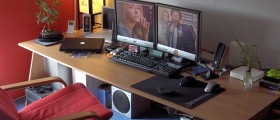



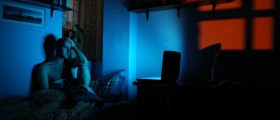

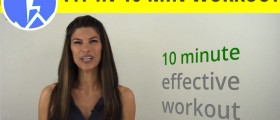






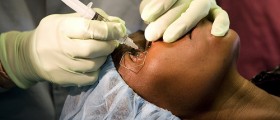
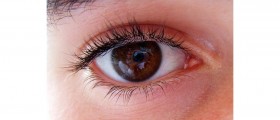

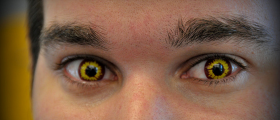
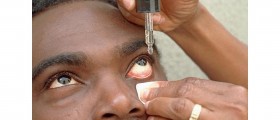
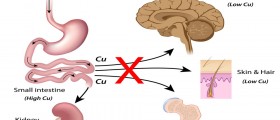
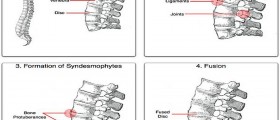



Your thoughts on this
Loading...